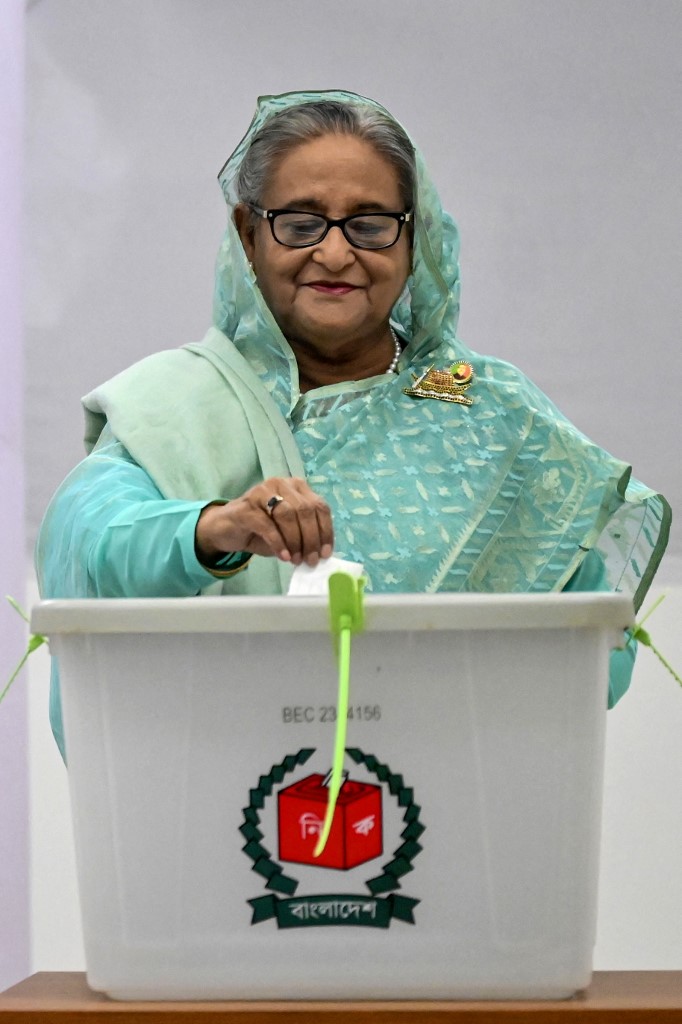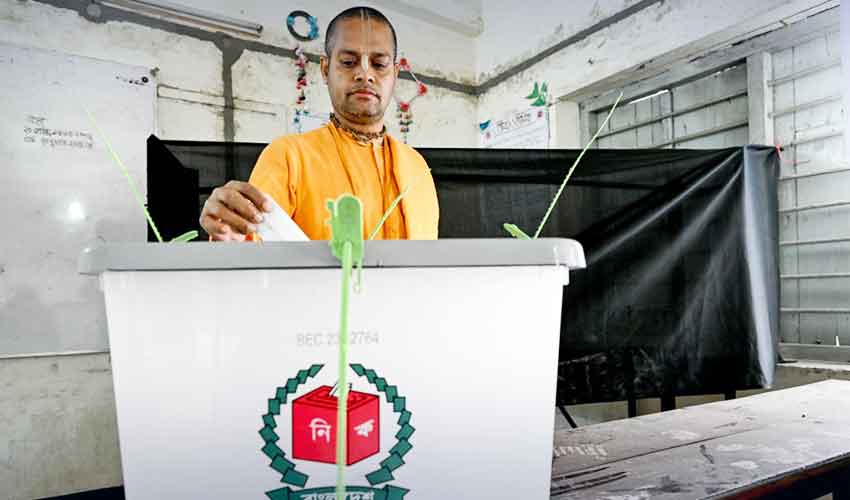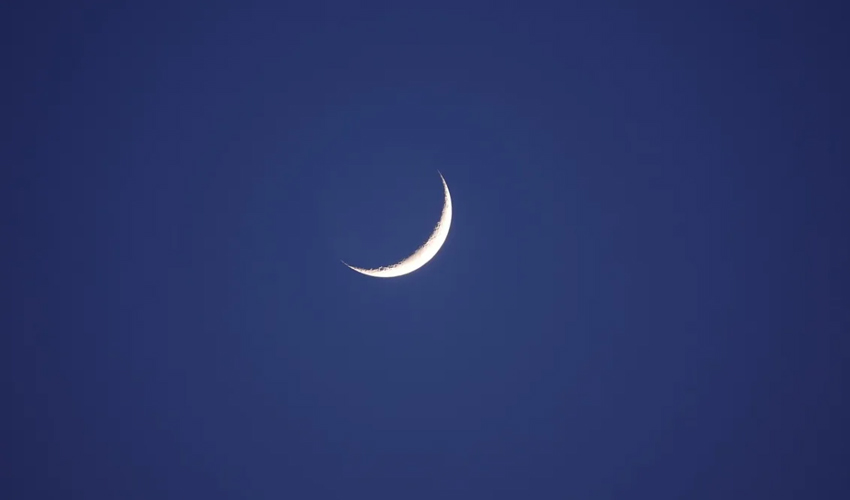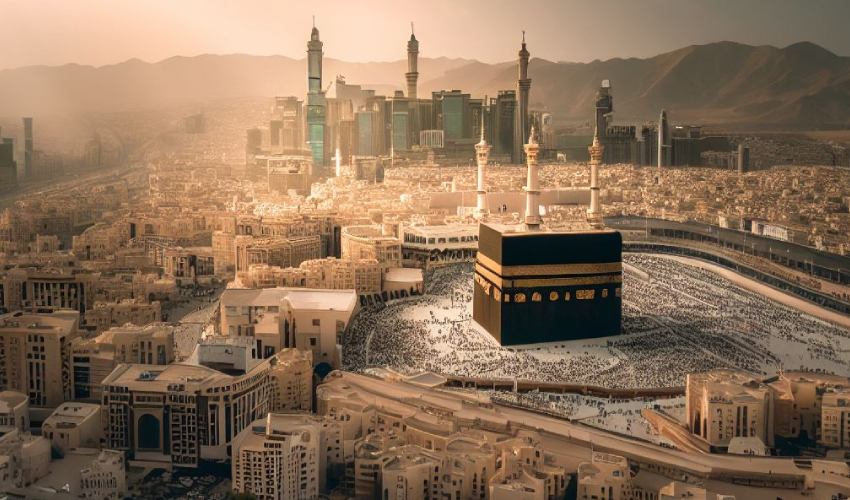Despite a boycott by the main opposition party and accusations of a "sham" election, Bangladeshis headed to the polls on Sunday in a vote projected to hand Prime Minister Sheikh Hasina a record fifth term in office.
Polling ended at 5pm local time, and the vote count process began soon after. According to early estimates by local authorities, the voter turnout by 3pm was only 27%, while polling was suspended in one constituency after the killing of a candidate.
In capital Dhaka, the turnout remained 25% an hour before polling closed, while the maximum number of voters turned up in Khulna with 32%.
Hasina, who has presided over economic growth but been criticized for human rights abuses and a crackdown on dissent and the opposition, faces almost no serious competition in the contested seats. However, her party has strategically left some seats empty to avoid the legislature being labelled a one-party body.
The Bangladesh Nationalist Party (BNP), whose leadership has been decimated by mass arrests, urged voters to abstain from the election, calling it a "sham". Hasina, 76, in response, labelled the BNP a "terrorist organisation" and urged citizens to cast their ballots and show their faith in the democratic process.
Also Read: Profile: Who is Bangladesh’s Sheikh Hasina Wajed? ‘5th time’ PM
"The BNP is a terrorist organisation," she told the media after casting her vote at the Dhaka City College alongside her sister and daughter. "I am trying my best to ensure that democracy should continue in this country."
Early signs suggested low turnout, despite reports of intimidation tactics aimed at boosting participation. Some voters claimed they were threatened with losing welfare benefits if they didn't vote for Hasina's Awami League party.

Only three people had cast ballots in the first 30 minutes of voting at one polling station in Dhaka, AFP reporters saw.
"They said they would seize it from me if I don't vote," Lal Mia, 64, told AFP in the central district of Faridpur. "They said since the government feeds us, we have to vote for them."
The BNP and other parties had staged months of protests demanding Hasina's resignation before the vote, leading to the arrest of around 25,000 opposition activists, according to the BNP. The government disputes this figure.
Security forces have been deployed in large numbers to maintain order during the election, which is expected to conclude with results after midnight.
Politics in the world's eighth-most populous country was long dominated by the rivalry between Hasina, the daughter of the country's founding leader, and two-time premier Khaleda Zia, wife of a former military ruler.
Also Read: Look back at Bangladesh's 50-year election history, as it heads to polls tomorrow
Hasina faces growing public discontent due to rising food prices, energy shortages, and wage stagnation in the garment industry. Her critics also point to a decline in democratic freedoms under her rule.
Zia, 78, was convicted of graft in 2018 and is now in ailing health at a hospital in the capital Dhaka, with her son Tarique Rahman helming the BNP in her stead from exile in London.
International observers have expressed concerns about the fairness of the election and the shrinking space for dissent in Bangladesh. The United States, a major trade partner, has even imposed sanctions on an elite police unit accused of human rights abuses.
As Bangladesh awaits the results of this contentious election, one thing is clear: the country's political future remains uncertain, with a potentially "dangerous combination" of an unpopular government and limited options for voters.



























